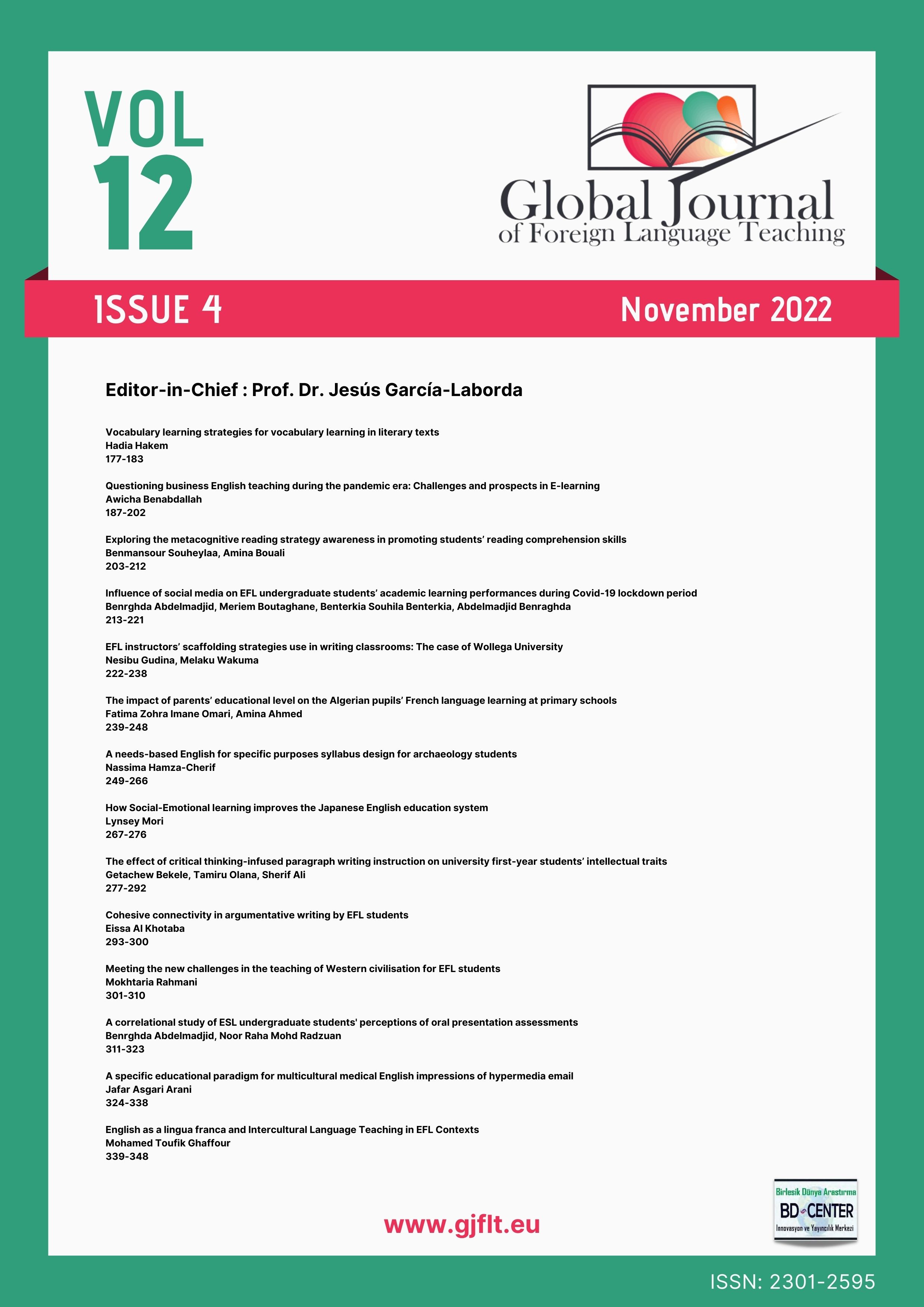English as a lingua franca and Intercultural Language Teaching in EFL Contexts
Main Article Content
Abstract
English as a lingua franca has many pedagogical implications for the field of foreign language teaching and teaching English as a foreign language, especially the deemphasize on the native-speaking cultural model. As a better alternative to the NS model, the present paper aims to discuss three key issues, the integration of non-native cultures into the EFL classroom to enrich EFL students’ cultural knowledge and to consider non-native speaking countries as a model, highlight the importance of the non-essentialist understanding of culture as a concept in such an integration, and, to consider a “glocal” cultural model as a second better alternative. Resources were gathered from previous literature and Byram’s model was considered while analyzing the resources gathered. The study makes propositions based on the findings of this study.
Keywords: EFL; English; foreign language; glocal cultural model, intercultural language teaching; lingua franca.
Downloads
Article Details

This work is licensed under a Creative Commons Attribution-NonCommercial-NoDerivatives 4.0 International License.
Authors who publish with this journal agree to the following terms:- Authors retain copyright and grant the journal right of first publication with the work simultaneously licensed under a Creative Commons Attribution License that allows others to share the work with an acknowledgement of the work's authorship and initial publication in this journal.
- Authors are able to enter into separate, additional contractual arrangements for the non-exclusive distribution of the journal's published version of the work (e.g., post it to an institutional repository or publish it in a book), with an acknowledgement of its initial publication in this journal.
- Authors are permitted and encouraged to post their work online (e.g., in institutional repositories or on their website) prior to and during the submission process, as it can lead to productive exchanges, as well as earlier and greater citation of published work (SeeThe Effect of Open Access).
